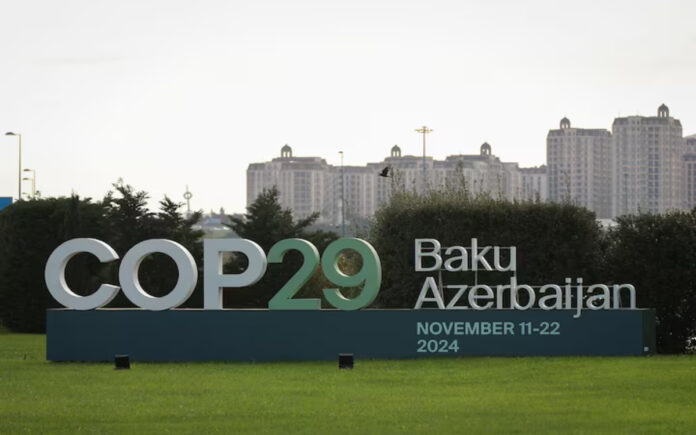Baku: The upcoming U.N. climate summit, COP29, to be held in Baku, Azerbaijan from November 11-22, has been dubbed the “Climate Finance COP” due to its focus on how to allocate funds to assist developing nations in addressing climate-related challenges. However, the task of reaching consensus on this issue could prove difficult, especially following the re-election of former U.S. President Donald Trump, a climate change skeptic, whose campaign had previously pledged to withdraw the U.S. from the 2015 Paris Agreement.
Delegates at COP29 will also look to make progress on key issues from previous summits. Here are some of the main agenda items for this year’s summit:
1. Climate Finance
A central theme at COP29 will be the New Collective Quantified Goal (NCQG), which will establish the new annual target for climate financing after the current $100 billion pledge expires. Wealthy nations have often struggled to meet this goal, creating distrust among the world’s most climate-vulnerable countries. While discussions will focus on setting a higher financing target, rich countries are reluctant to fund it entirely from their budgets. The proposed solution is a complex mix of multilateral lending reforms aimed at de-escalating financial risks and attracting more private capital.
It remains unclear how much wealthy countries will contribute to the target, and whether emerging economies like China and Gulf oil states should also contribute. The goal is to generate trillions of dollars annually to support climate efforts, but Azerbaijan, the host nation, suggests a target in the “hundreds of billions” is more likely to be achieved through international consensus.
2. Fossil Fuel Transition
At COP28, countries agreed to transition away from fossil fuels in their energy systems. However, fossil fuel use and exports continue to rise globally. Despite this, new exploration areas have been approved for oil and gas production in nations such as Azerbaijan, the U.S., Namibia, and Guyana. Due to unclear commitments to phase out coal, oil, and gas, COP29 is unlikely to establish firm timelines or stronger policies on fossil fuels. However, some countries may push for a halt in new coal plant permits. Additionally, discussions will focus on tripling renewable energy capacity and doubling energy efficiency as part of the transition away from fossil fuels.
Also Read | New Era, New Threat: North Korea’s Strengthened Arsenal Could Test Trump
3. Carbon Market Rules
Governments will work to finalize the rules for carbon credit trading, which allows nations to offset their emissions through projects like forest conservation. The carbon credits, which can be traded on global markets, need a clear regulatory framework to ensure transparency and environmental integrity. Key issues yet to be decided include the criteria for issuing credits, how they will be evaluated before trading, and whether credits can be revoked.
4. Boosting Transparency
Azerbaijan hopes that COP29 will see the submission of the first Biennial Transparency Reports (BTRs) from participating countries. These reports are intended to track progress in meeting climate targets and outline future goals. BTRs will also provide crucial information on how much funding is required for developing countries to transition away from fossil fuels and adapt to the impacts of climate change. National pledges to cut emissions have so far fallen short, and these reports are expected to help bridge that gap.
Also Read | Trump’s ‘Protection Money’ Demand Could Spur New Taiwan Arms Orders
5. Adaptation Focus
At COP28, countries committed to creating a framework for national adaptation plans to help populations adjust to climate impacts such as heatwaves, sea-level rise, and droughts. However, this framework lacked specific targets for progress or strategies for linking adaptation projects with climate finance. COP29 will seek to establish more detailed and measurable adaptation goals.
6. Money for Loss and Damage
COP27 established the Fund for Responding to Loss and Damage, designed to assist countries affected by climate-driven disasters like floods, storms, and droughts. So far, $660 million has been mobilized for the fund, which will be headquartered in the Philippines. However, vulnerable nations are expected to demand more financial contributions from wealthier countries to adequately address the challenges of climate-induced losses.



